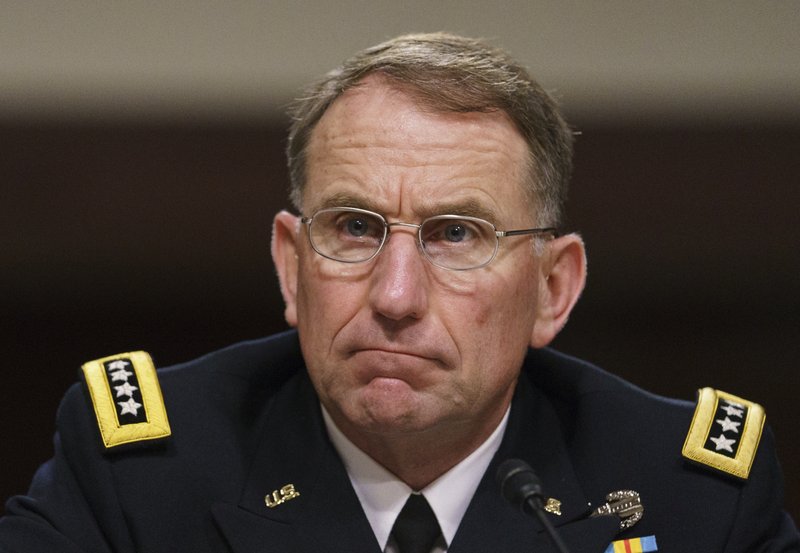WASHINGTON -- North Korea's work on nuclear weapons and missiles is "inconsistent" with its stated intent to move toward nuclear disarmament on the Korean Peninsula, the commander of American and allied forces in South Korea said Wednesday.
Army Gen. Robert Abrams, in testimony before the House Armed Services Committee, also said he has seen "little to no change" in North Korea's broader military capabilities, citing its typical pace of winter troop exercises.
Asked by Rep. Mac Thornberry of Texas, the panel's ranking Republican, about any recent change in the North's production of nuclear weapons and material and missiles, Abrams said, "Their activity that we've observed is inconsistent with denuclearization." Abrams offered to provide details of that activity in a closed session.
At a meeting in Singapore last June, President Donald Trump and North Korean leader Kim Jong Un issued a joint statement that said the North "commits to work toward complete denuclearization of the Korean Peninsula." But since then, it has become clear that Washington and Pyongyang do not agree on the definition of "denuclearization."
At their follow-up summit in Hanoi last month, the two leaders failed to agree on a way ahead. North Korean officials said afterward that Kim would decide soon whether to continue talks with the United States on his nuclear program and whether to continue his self-imposed moratorium on testing nuclear devices and launching ballistic missiles.
At Wednesday's hearing, Randall Shriver, the Pentagon's top Asia policy official, echoed Abrams' remarks about a lack of movement toward North Korean denuclearization.
"On our core area of interest and concern -- the issue of denuclearization -- we have not seen any progress to speak of," Shriver said. He added, "We're disappointed that they haven't come to the table in a serious manner."
Abrams said he is encouraged by what he called a significant reduction in tensions on the Korean Peninsula over the past year.
"There is a palpable air of calm," Abrams said. Over the past 14 months, the U.S. and North Korea have moved, he said, "from provocation to detente."
The U.S. has about 28,500 troops in South Korea and is obliged to come to the South's defense in the event it is attacked by the North.
A Section on 03/28/2019
